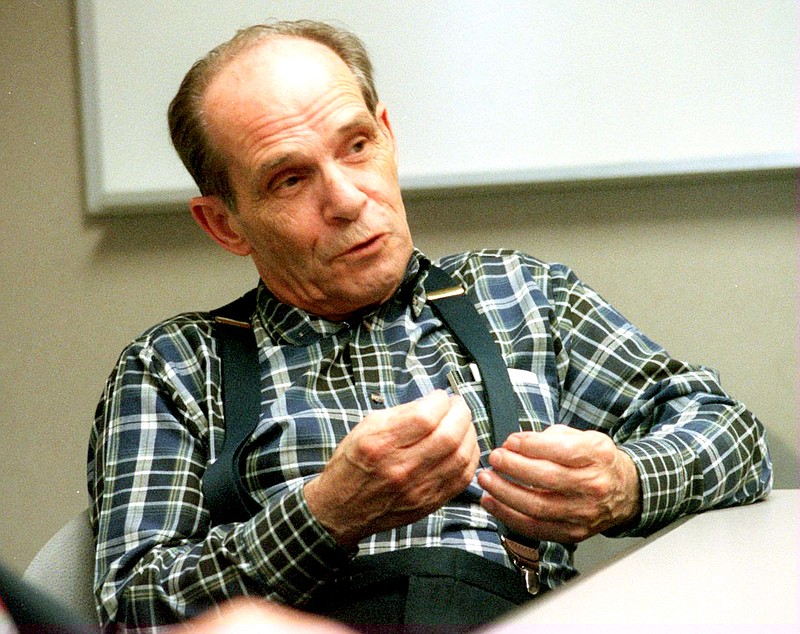A Virginia property once owned by George Washington and in 1971 the subject of a purchasing scheme hatched by a Chattanooga state legislator is still a political football 50 years later.
River Farm, one of four or five (depending on the source) farms once owned by the nation's first president, was taken off the market earlier this month after bids from a conservation trust and from a Georgia businessman and former Trump administration appointee were rebuffed.
The 27-acre farm's owners, the American Horticultural Society, said the property is no longer for sale. The tract would continue to be the organization's national headquarters and would "remain a priceless asset for the general public and future generations to enjoy."
The property was purchased for $800,000 by the organization in 1973 with generous help from philanthropist Enid Annenberg Haupt.
It was two years before her purchase, though, when Tennessee state Rep. David Copeland, R-Chattanooga, got involved. The legislator learned the land, outbuildings and other attributes of the property were for sale, and the only bidder was the Union of Soviet Socialist Republics (the communist USSR), which had offered $900,000.
The USSR apparently wanted to use the property as an embassy retreat. The then-owner, according to Times Free Press archives, was "not anxious" to sell to the communist nation, but the country had been the only bidder.
Copeland's idea - 50 years ago this week - was for Tennessee to pony up $18,000 from its emergency contingency fund and challenge the rest of the states to do the same. If all 50 states kicked in, the amount would be $900,000, enough to match the USSR bid.
"It is our opportunity to demonstrate the ability of the states to see to the interests of the nation more expeditiously than the federal government," he said at the time.
Copeland, according to the Chattanooga Free Press account, said Tennessee Gov. Winfield Dunn was on board for the plan.
His press secretary's words didn't seem so certain. He said the legislator's telegram had arrived that morning, and "the governor has not been able to have all the necessary information before him" to make a formal challenge to the other states.
He added, hopefully, that the governor's staff and aides were going to stamp "priority" on the matter.
Copeland - who died in 2019 - said the land not only had been owned by Washington, but its documents included plans for military strategy during the Revolution War. He also said the president's children were educated in one of several buildings on the land, which faces the Potomac River.
The first president, though, had no children, but his wife, Martha, had four from her first marriage, so they might have received educational training there.
On the day the article detailing Copeland's scheme ran in the newspaper, U.S. Secretary of State William P. Rogers said the State Department did not approve and would not recommend the sale of the property to USSR officials.
"This land is for all the American people," Copeland said, "not for any individual or group."
In 2020, the American Horticultural Society put the property up for sale for $32.9 million, having seen a huge depletion in funds with the COVID-19 virus. The offering immediately became controversial because officials said any sale of the property that didn't keep it open to the public could violate a Virginia law of not adhering to the term of a philanthropic gift. And Haupt had seemed to declare in her writings that she wanted the property to remain open to the public.
Although Washington never lived on the property, according to modern accounts, he named it River Farm, he rented it out, and it remained in his family for nearly 100 years, from 1760 to 1859.
Copeland's scheme, after the state department pooh-poohed a sale to the Soviets, went nowhere. But he apparently wasn't the only one concerned with a property once owned by the nation's first president potentially winding up being owned by the USSR.
Haupt, quoted in the March 11, 1973, issue of the New York Times, was incensed the property might fall in the hands of communists.
"I went absolutely wild," she said. "I called the state department to protest, but by then the whole deal was off. I was just going to buy it and give it to the public then."
The property, according to its history on the American Horticultural Society's website, had been withdrawn from the market in 1971 by then-owner Malcolm Matheson at the request of the state department.
"I turned those Russians down four or five times," Matheson told The Washington Post in 1971. "I'm very glad the State Department took me off the hook."
